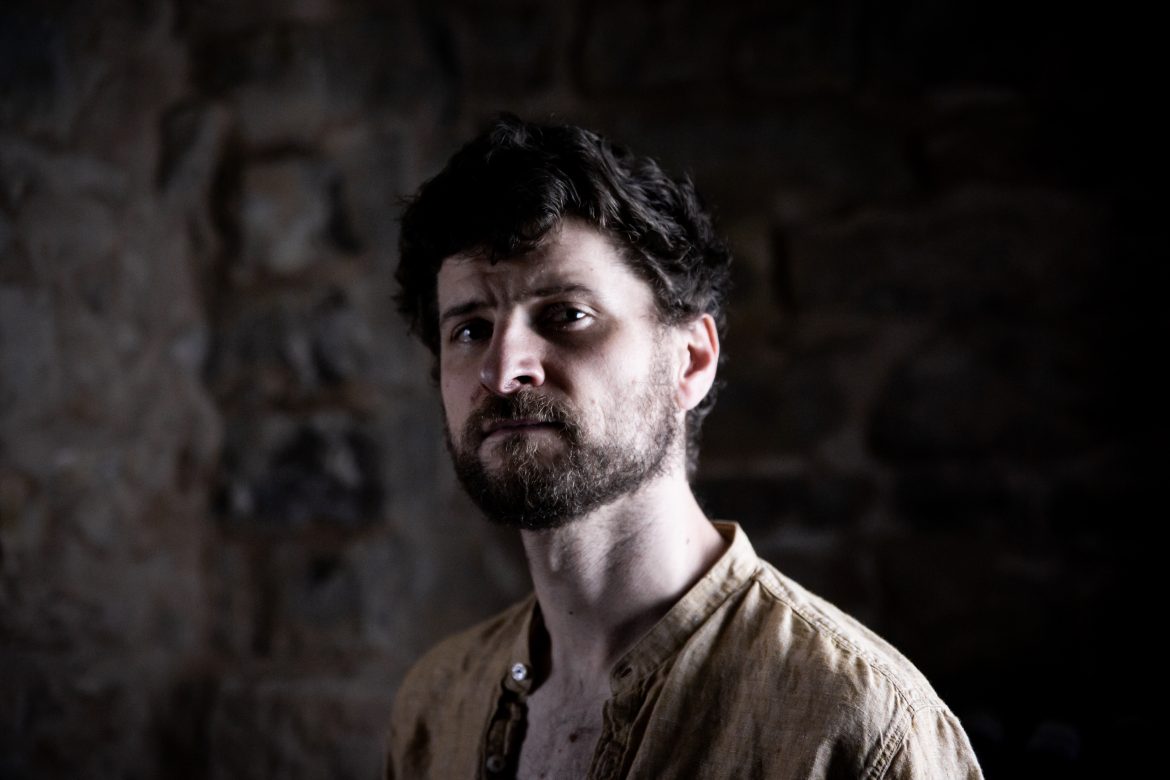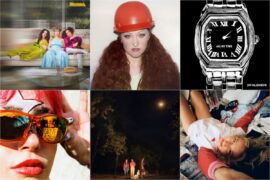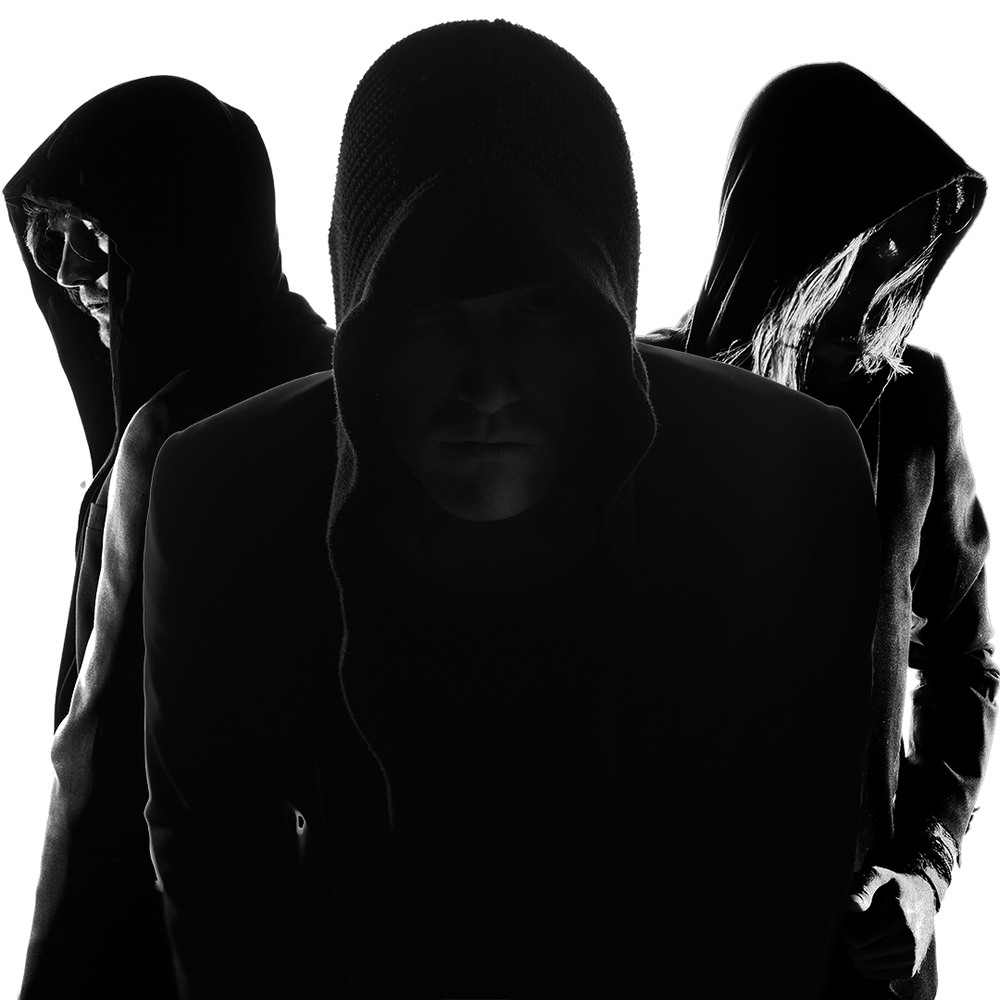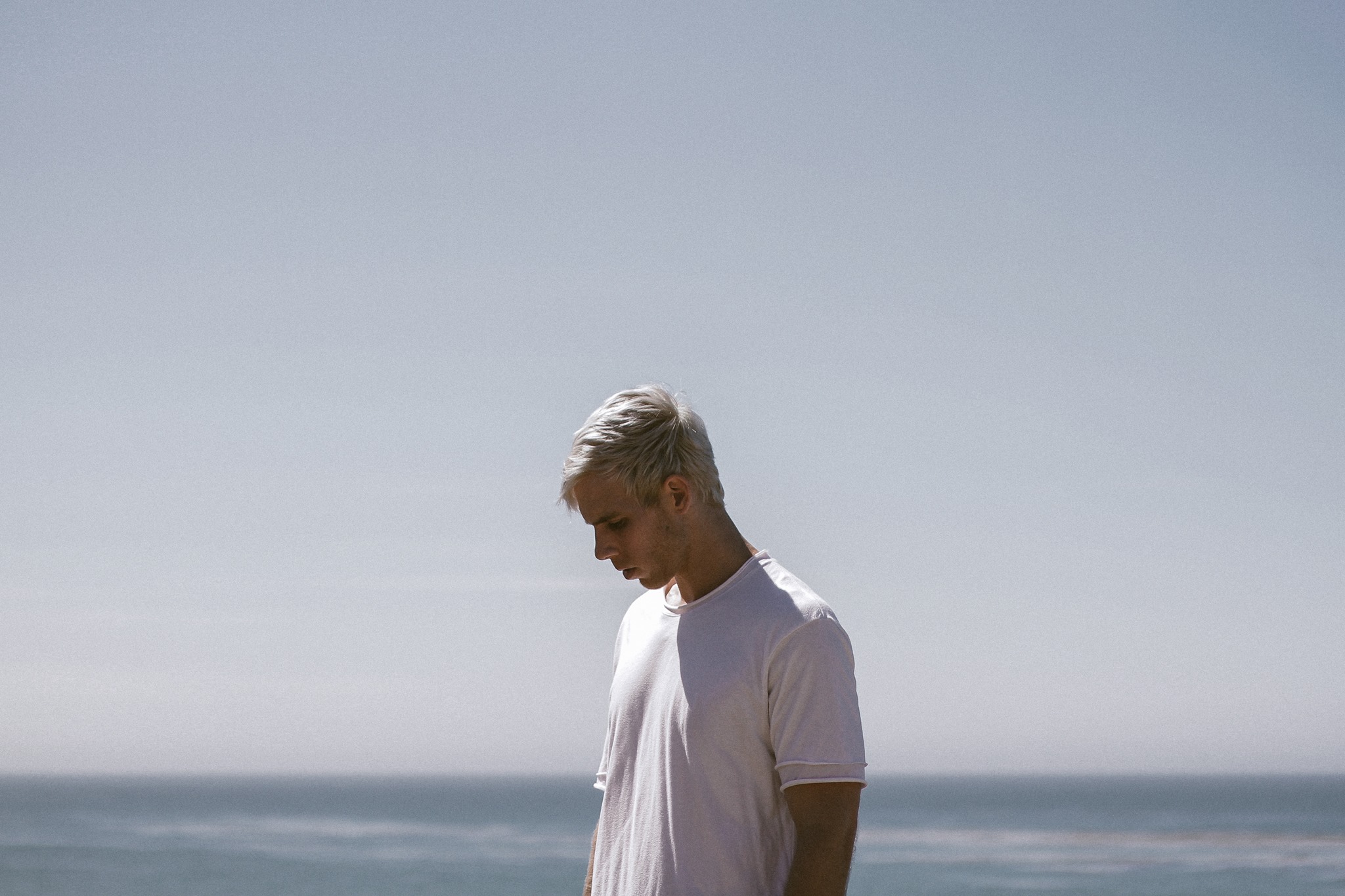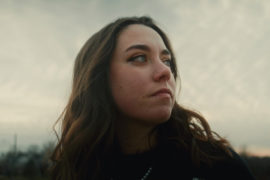Michael League’s first solo offering So Many Me is a dense and eclectic record, but at its core, it’s a pop record about human behavior– and what could be more pop than people?
Stream: ‘So Many Me’ – Michael League
There are worlds of people inside of every person.
Michael League is a group animal. As bandleader and bassist of the multitudinous Snarky Puppy, a member of the world music supergroup Bokanté, guitarist and singer in David Crosby’s Lighthouse band, and more, League is known for his cross-genre collaborations and his production skills. So naturally, he entitled his first-ever solo record So Many Me (out June 25, 2021 via GroudUP Music). So Many Me, by virtue of League’s outsized talent, does not necessarily sound like a solo record. The album is brimming with sounds, from League’s multi-layered, dense vocal harmonies to various instruments from Turkey and Morocco — all played by League himself.

Most often thought of as a guitarist, League took a different route; So Many Me is synth heavy and punctuated by resonant hand percussion filling the role of a drum set. It’s also League’s first time as a lead vocalist, and he uses his smooth tenor to great effect. Each song is stacked with vocal lines, with almost no moments of a single track; even with a single melodic line, League double and triple tracks his voice. The outcome is a lush atmosphere, both startlingly intimate and also strangely detached — the latter quality intentional on League’s part.
Despite its personal sounding title and some of the thematic elements of the songs, So Many Me is about human observation. Each song takes on a different element of humanity, from its darkest urges to its eventual end. The speaker of these songs possesses a bird’s vantage point, viewing these sprawling human experiences from above. And created as it was in the crucible of quarantine, it takes on a particularly potent meaning.
So Many Me contains many sounds that fans of League’s other projects will be familiar with — funky polyrhythms and jazz influence — but the standouts here are the vulnerable moments. The album’s final track, “The Last Friend,” is an ethereal, chill-producing piano ballad.
Oh, it’s a slow climb
Time is a long line
Then it’s not and there you are
A shadow turned into a silent star
The last friend
It is, of all things, a sort of love letter to Death. In its final moments, League utters one of the few lines on the album where his voice stands on its own: “…the last friend.” The piano slowly fades out into oblivion, and at the very last, studio rustlings can be heard as League steps away from his microphone, and out a door.
As a first solo record goes, not much could be better. Atwood spoke to League about Turkish and Kurdish influence on his music, surrealism, and canaries in the coal mine.
— —
:: stream/purchase So Many Me here ::

A CONVERSATION WITH MICHAEL LEAGUE
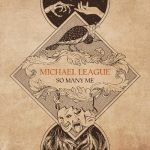
Atwood Magazine: I know this solo project is a long time in the making, and that you had a very clear vision for it. What led you to the sounds and textures that are present in this record?
Michael League: I became really interested in studying Turkish and Kurdish percussion a few years ago, and so I stayed in Turkey for a couple months studying with some teachers and I’ve continued to go back. Pretty much the same in Morocco. I didn’t live there, but I go often to study there. I don’t play drum set, and this is a pop record. So I basically had to take the instruments that I am somewhat able to play and perform the role of the drum set with those instruments. For me, it wasn’t like, “Damn, I have to do that.” It was more like, “Wow, how cool that I’m going to have to do this because it will create a sound that’s not so common in pop music; hearing a riq and a Turkish daoul instead of a bass drum and a snare and a hi hat.” It makes the record a little more distinct sonically.
I wanted to put a lot of different things that I love on this record without cramming too many things in. I was trying to make it more of a synth heavy record, rather than a guitar heavy record. I’m much more of a guitar player than I am a keyboard player, but there was something about that combination of textures that made sense to me with all the hand percussion. Synths and a big Moog bass sound and then these airy vocals all fit together in a sensible way in my head. I think as a composer and as a producer, texture is the first thing I think about, even before musical content.
What was it that drew you to those cultures’ instruments in the first place?
Michael League: The Turkish and the Kurdish instruments are very resonant. You feel the drum vibrating against your body and playing it gives you a very deep, enriching feeling. Any instrument that’s acoustic is going to be like that in a way, but not like these instruments. There’s a thing about a clay drum with a goat skin head that you feel through your whole body, and it’s very healing. But then thinking about the Moroccan stuff, those sounds, to me, are really funky sounds — like the metal castanets or the bendir with the strings on the inside. There’s something about the way that all those sounds interact that encompasses everything that I love about percussion — big, deep, earthy resonance, and sharp, nasty, short, crispy sounds.

You wrote in an Instagram post a couple weeks ago, “Even if we don’t know the names, we feel the contributions they made to the art.” I always think about how no art is made in a vacuum and I think a lot of people want to think that. How do you contextualize yourself in the wide world of collaboration you exist and work in?
Michael League: I think I’m a group animal. When I was a kid, I was always more excited about team sports than going running, and my bands [Snarky Puppy and Bokanté] both have like, a dozen people in them. I think it’s my nature to be a part of a team. But I think it’s also important as artists that we don’t just rest on the things that we already know how to do. I feel like I’m a good team builder. I think one of my main strengths as a musician is the ability to see how different people will work together and create a context in which they can all be their best together, and this process [of creating a solo record] is the complete opposite. It’s just me alone in a tracking room with my co-producer and engineer Nic Hard in the control room, and I’m the one playing and singing everything. So it’s a very different and revealing and vulnerable experience to not be able to do the thing that probably I do best in music.
I was definitely uncomfortable in a lot of moments, but the fact that it’s uncomfortable for me is a good thing, because it’s showing that I’m trying to grow in a certain kind of way. I could have hired a great percussionist or singer to play on the record, but I was like, no, I’m going to do this to challenge myself and also because I think it will have a unique result if I’m the one doing everything versus everything else I’ve ever done in my life.
So you said you start with texture and soundscape; when in this process did lyrics and concepts start coming in? Or was that something you had before anything else?
Michael League: Some songs, like “The Last Friend” — that was a song title that had been on my phone for three years. “Me, Like You” was a song title that I came up with while watching fucking Westworld or something [laughs]. The song title sometimes came first with a concept, like that song, the concept being self loathing, and the jealousy of someone else. Or not even jealousy — like, admiration of how great another person is, and then kind of wanting to become them, and then maybe taking a dark step, thinking about singularity, or whatever. I had that idea before I wrote the first note. I also have hundreds and hundreds of short, stupid ideas on my phone. So sometimes what I’ll do is I’ll just think about a song title and concept, and then I’ll go through my phone and see what ideas intuitively match. It doesn’t have to have a rational explanation. It’s just like, “Okay, that chord progression to me sounds like this idea in my head, or that tempo feels like what this needs to be,” and then I start developing it. Normally the lyric comes last.
How do you conceptualize this record as a whole? There’s a lot about depression and there’s definitely kind of an anxious timbre running throughout the songs.
Michael League: To me, the record is about human observation, both as individuals and as a collective. Some songs are more societal, like “In Your Mouth.” Some songs are intensely personal, like “The Last Friend.” But every song is about humans. If I go one by one, I think that would be the only consistent thing. And all of the songs were composed during a pandemic, in confinement. Songs like “Touch Me,” you know, these things are coming out in a certain context — thinking about death, thinking about where you’re at in your life, thinking about how important it is to be able to touch each other as a species.
“Fireside” was definitely coming out of this idea that the pandemic made us all really think about what’s important in our daily lives.I’m on tour with Bill Lawrence right now (who plays in Snarky Puppy), and a lot of our conversations are dominated by this idea of, “Man, I really wish I could…” — this statement of wanting things, but maybe not getting after them. And instead of getting after them, just kind of going through the motions. And “Fireside” is really about this idea that we spend a lot of our lives doing shit that we don’t even really believe in or want to do. We just do it because that’s what you do, and I think that there are certain moments in your life in which you take note of the things that are important to you. I think that a lot of people collectively during the pandemic took note of what was important to them because their normal lives stopped. My whole life, it’s always been like sitting next to a fire — there’s always a moment like , “Yeah, I fucking get it!” And then the fire goes out, and I go to bed, and I wake up the next morning and I’ve forgotten everything [laughs]. All the conclusions I came to sitting in front of the fire.
So I think all the songs in some form are relating to the human experience. And, as you said, certain songs might be very dark, but they have a certain detached quality in the vocal. I tried to maintain a coldness in a certain way throughout the record. I guess I would call it the coldness of objectivity — rather than writing a song that’s like, you broke up with me, and now I hate you and I’m sad, it’s more of a removed, observational voice.
What made “Right Where I Fall” the right song for the lead single?
Michael League: I think that song kind of succinctly encapsulated what I wanted to say with the record better than any other song. I don’t think it’s the best song I wrote on the record, but I think that it’s very direct and very succinct. There’s very few lyrics in it, but I think the lyrics say a lot. As people’s first contact with the album, it made sense to me to take the song that was most representative of the concept — both the sonic concept and the personal, human concept.
Can you talk a bit about the music video for that song? It’s so visceral and must have been so uncomfortable to film, with the string around your face and everything.
Michael League: It wasn’t comfortable [laughs]. The truth is that when we finished it, and the director [Jep Jorba] and I edited it and everything, I was like, “I don’t think this is uncomfortable enough. [Laughs] I don’t think this is disturbing enough.” Because I was so inside of it. And then we started playing it for people, and they were like, “That’s really fucked up.” And I was like, “Great. Good. Thank God [laughs].” That song and the video are basically about the way that people deal with their world crumbling around them. Some people love to be consoled. Some people love to talk about their feelings with others. Some people like to be left alone, and I’m that kind of person. I don’t want anyone in my blast radius, basically. So I try to isolate.
The video was supposed to portray a person whose life is slowly crumbling and spiraling out of control. Nothing’s really in its right place. That’s also how it feels when you’re suffering from anxiety or you’re depressed. Your cereal doesn’t even taste right in the morning. You can’t sleep the way that you would normally. You feel like you’re being slowly choked, and so that’s what I was trying to express in the video.
I live in Catalonia [Spain], and there’s a great history of surrealism there. Dali is my favorite painter. Throughout all of the music videos, there’s an effort to embrace the surrealist history of the region. To me, that form of expressing ideas lines up artistically [with the music] in a certain kind of way with the level of the art. I don’t mean good/bad level, but like the frequency, like radio station frequency, of the art in a visual way. The stuff that [art director] Renata did in that video — it’s like the same middle ground between a huge artistic statement and pop art. You know, it’s not The Rite of Spring, but it’s also not a casual record. So, I think there was some kind of parallel there, some kind of connection that I liked.
I love the use of sentinel species as a metaphor in the album's opener. Can you elaborate on that a bit?
Michael League: I think the main association with that term is the canary in the coal mine. The primary function of a sentinel species is to detect danger and toxicity for another entity. And if there is danger or toxicity, then that animal generally dies, right? Kind of a sacrificial creature. You can interpret that song as being about a person in a toxic relationship, where the the partner is making them feel sacrificial — that they’re using them to test the toxicity of the relationship. Or you can look at it on a societal level, about the way that governments treat people. So that song is about the feeling of being used by someone who emanates toxicity, in whatever form that might take.
I'm really interested in the fact that you have explicitly called this a pop record, because obviously, you're like a genre chameleon and have done a million different things. Did you sit down to specifically make a pop record?
Michael League: Yeah. Oh yeah.
How do you define pop? I think it’s thought of as so many different things by so many different people.
Michael League: You could argue that pop is whatever is popular. Or you could argue that it’s an aesthetic. And if you define that aesthetic, you might say, relatively short songs with catchy, hooky choruses, and a succinct and direct message that isn’t overly convoluted with excessively intellectual fluff. That’s one way you could define pop, and if you define it that way, rather than just what’s popular, then you expand your possibilities exponentially, right? Because then, Elvis Presley, or Chuck Berry, or Prince or Aretha Franklin or Stevie — but sometimes you get into like, “Okay, well, Aretha Franklin, maybe that’s R&B,” but they’re hooky songs. Michael Jackson’s the King of Pop. If there were an artist right now playing Michael Jackson songs, I don’t know that they would be labeled pop anymore.
But it’s because now when we talk about pop, we’re referencing what the aesthetic is right now. I think if you look at pop in that second definition, then actually there are loads of options. It’s not a dirty word, you know, it’s my favorite music – it’s the ability to write a clear, catchy song that grooves and reaches you quickly, but also has lyrics that are well thought out and are thoughtful and challenge ideas…which also Michael Jackson did. And Prince did. They challenged a lot of people in terms of the way that they think about sex, about society, about race. So when people are like, “Yeah, but your record’s not pop,” it’s like, “Really? Would it have been in 1986?” I feel like it would have been a pop record in 1986, so why is it not a pop record now? I think it just shows that pop has taken on an inherently kind of negative context as being dumb music for large groups of people, and that’s not it.
What does the album’s title, So Many Me, mean to you?
Michael League: I think it works on a couple levels; one being, of course, that I’m playing everything and singing everything. But I think that the more relevant definition or explanation of it is that because it’s an observation of humanity, it’s also an observation of myself — about the different sides that we have as people, the fact that we have a lot of different kinds of people inside of us. We show each of those people in different moments based on our environment. There are worlds of people inside of every person and then that message is being actualized by one person playing and singing everything. So I think it rounds out.
Michael League: I think it would be cool if people identified with the message in each song. That would be my hope for the listeners, that they check out sentinel species and ask, do they feel that way sometimes as a member of a society or as a member of a relationship? Which character are they? The oppressor or the oppressed? When they hear “The Last Friend” — to entertain the idea that Death is not this horrible character that enters in the last moment of your life and sucks the force out of you, but someone that’s with you your whole life, guarding your experiences and preserving them. I made the effort in the songwriting process to express ideas in a way that isn’t really standard. But it’s not necessarily a challenging perspective, as a listener. It’s not opening your mind up to any new kinds of ideas. I think that really great pop music generally does open your mind up in a certain kind of way. I’m not saying that my record is illuminating or enlightened; I’m just saying that the perspectives that I’m trying to present in general are nuanced. It’s not just like a piece of steak on your plate. There are some ingredients in there that you need to pay attention to. — — — —
Maybe the answer is no, considering that concept, but would you say this record has a central thesis or question that you want people to think of as they’re listening?

Connect to Michael League on
Facebook, InstagramDiscover new music on Atwood Magazine
? © Txus Garcia
:: Stream Michael League ::

